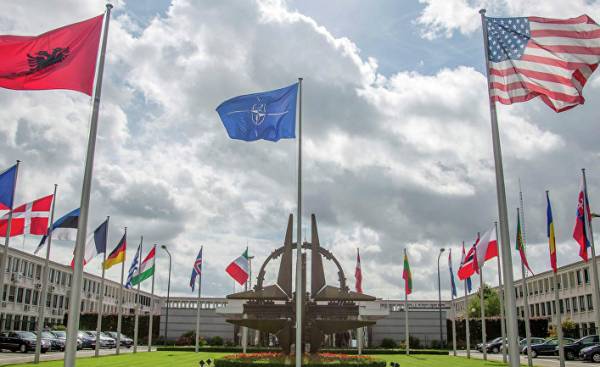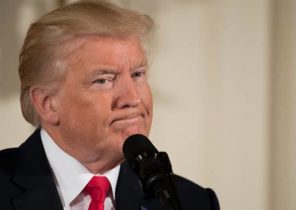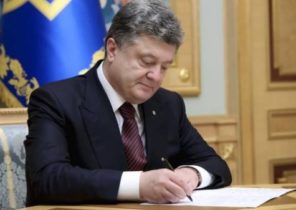
It took more than a month after Donald trump took over the presidential chair. So far, however, his diplomatic course with the fog. The main reason is the belated formation of the foreign policy team. Despite the fact that the Congress has approved the candidacy of the Minister of defense of Mattis and Secretary of state Tillerson, other positions are still free.
However, apart from the belated appointment of personnel, there is the problem of leadership in the team. By and large, the Minister of defense and the Secretary belong to the main wing of the Republican party, however, approached President trump is a radical position, proposing to destroy the existing order. During the election campaign they criticized the main faction of the Republican party.
One of them, Flynn was appointed national security Advisor, there were problems in connection with the relations with Russia, and he had to resign.
However, Steven Bannon (Stephen Bannon), who became the new chief strategist, whose position corresponds to Japanese chief Cabinet Secretary, being a member of the National security Council of the United States, is positioned above the Chairman of the joint chiefs of staff. The struggle for influence on the President trump, who has a wide knowledge in the field of diplomacy, makes the foreign policy of the administration to trump difficult to understand.
Foggy situation affect relations with Europe. In mid-February, Vice-President Mike Pence (Mike Pence) and the Minister of defence Mattis visited Europe. They took part in the summit of defense Ministers of NATO and Munich security conference.
We can say that the reaction of the European countries in their messages were mixed: some calmed down, some, on the contrary, excited. Mattis and Pence stressed the importance of NATO and that the United States will continue to support the Union. This is a significant departure from pre-election statements of trump, who called NATO a relic of the past.
However, they simultaneously raised the issue of the apportionment of the expenses of the Union, demanding to increase the burden on European countries.
Disparate foreign-policy ideas generate confusion
In NATO there is a rule that defense spending should reach 2% of GDP. However, almost none of the 28 countries in the bloc, has not reached this level. USA, allocating 3.5% on military expenditures, carry significant weight.
In a staff-apartment of the NATO the Minister of defence Mattis said that the us taxpayers are unable to bear excessive costs for protection of Western values. He praised Estonia, Greece, the UK and Poland, who reached the 2% level, and put pressure on other countries. When during a speech at the Munich security conference, Mr. Pence demanded to share the expenses, the applause was liquid.
In Europe also are starting to realize that it is necessary to increase defense spending. Of particular importance is Germany. Merkel’s administration plans to increase defense spending. While the Social democratic party of Germany refers to it negatively. The probability that Germany may experience internal political turmoil.
However, the problem is not only in the defence budget. Mattis and Tillerson criticized Russia, however, did not deny the possibility of revising policies toward Moscow. They stressed the role of NATO in the middle East, but did not provide specific measures. Such ambiguity is a consequence of the fragmentation of foreign policy ideas in government circles in the United States.
Bannon doesn’t share the Republican position
The main faction of the Republican party considers NATO and alliances with other democratic countries American assets. Even if she wants to share the expenses, it is not trying to destroy the Union itself. Nevertheless, ‘bannon a completely different approach.
Looks like he combined the theory of Huntington about the clash of civilizations and economic nationalism. For example, Bannon believes Islamic extremism ideas. He also commended the Putin administration, calling it nationalistic.
Allied countries that do not share this position, are not assets but burdens. Requirements to increase the cost of the allies, a compromise can be found, however, to determine the strategic objectives of the Union — a task more difficult.
Another problem is the attitude of the administration to trump the EU. After the Second world war, Europe has been a strategic interest for the United States. However, currently, the main faction of the Republican party as a whole follows this course, but a skeptical faction criticizes the EU and supports its opponents.
From the administration’s policies trump will depend on the attitude of European countries to NATO.
Unstable relations between the United States and Europe directly affect Japan. The February meeting of the heads of Japan and the United States were successful, however, it is impossible to perceive Sino-American relations are too optimistic. There is a possibility that when the situation within the administration trump stabiliziruemost, it will clarify your requirements in order to justify excessive defense spending of the West.
Likely to be right, if Japan and Europe will increase defense spending. However, this should not happen at the behest of the United States. Japan and Europe must define a common strategic goal, as a friendly and allied countries. The task of the Japanese diplomacy is to prepare for this Foundation.







